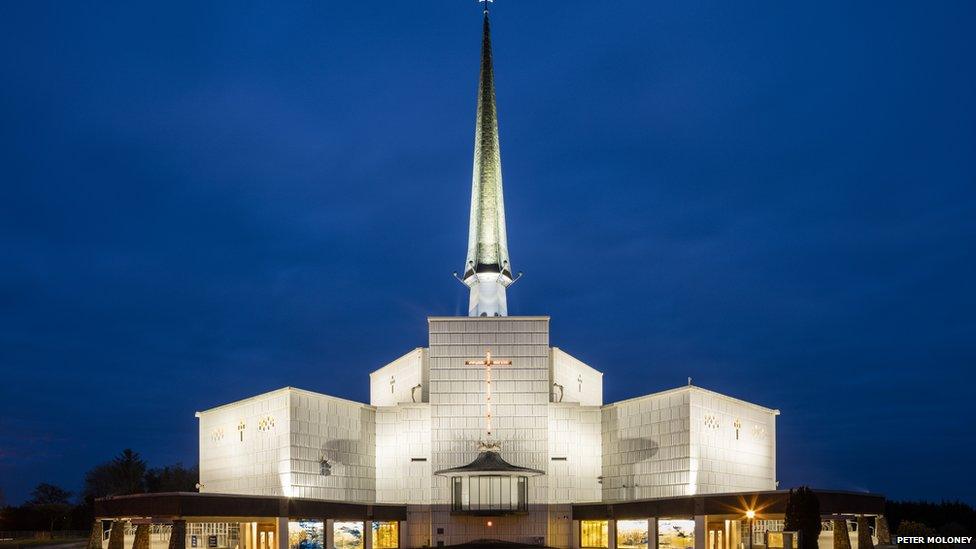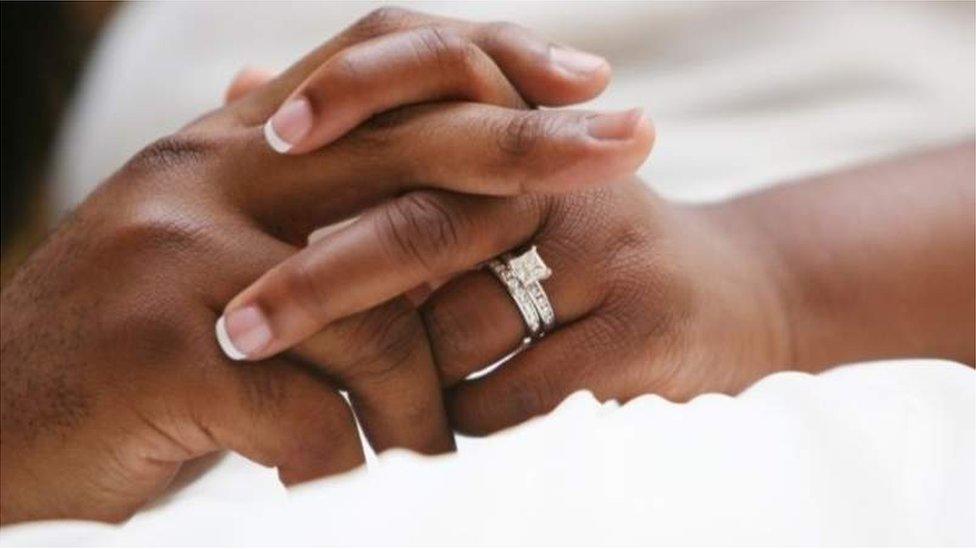Knock Marriage Introductions closes after 50 years
- Published

In its heyday, the service was responsible for 30 marriages a year
A matchmaking service for Catholic couples is closing after 50 years following a decline in demand.
The Knock Marriage Introductions in County Mayo claims to have been responsible for 960 marriages.
The service, based at the Knock Shrine, was set up by Fr Michael Keane in 1968.
Current director, Fr Stephen Farragher, said online dating agencies and apps have now made it possible to meet someone "at the touch of a button".
"Back in 1968, Ireland was a different place than it was today," he told BBC News NI.
"Fr Michael Keane saw the extent of loneliness and isolation, particularly as a result of emigration and also due to the fact that people didn't even have phones and landlines."
The service
Singles applying to take part in the service filled out two questionnaires answering questions about themselves.
Applicants provided details on their hobbies and the kind of qualities you would look for in a partner.
Singles were looking for love for a range of reasons, said Fr Farragher.

Today's couples admit to Fr Farragher that they met through dating apps
"One woman applied saying she wasn't really interested in marriage as such, but that the heating bills were going up and she was living on her own, so she felt a little bit of company might help cut back on the bills," he said.
People who took part were paid a yearly subscription, which entitled you to "any number of introductions".
Changing face of Ireland
In its heyday, the service was responsible for 30 marriages a year, said Fr Farragher.
But in recent years, there had been a noticeable decline in demand for the service which made it no longer viable, he added.
"Seven years ago, we had 10 marriages in the course of a particular year. In the last few years, it has varied from three to four marriages a year," he said.
As the money from annual client subscriptions decreased, the service had to be supplemented in recent years by donations from dioceses around Ireland.
But rather than indicating a turn away from Catholic society, Fr Farragher said that it is a symptom of advanced communication technologies.
"The vast majority are still church marriages," he said.
"In the last year or two, the couples had no problem admitting that they met through Tinder or a similar type of app or dating agency.
"If that need is being fulfilled elsewhere, we are quite happy for others to fulfil that need."